
Tapovan: The Spiritual Heart of Rishikesh
Nestled in the serene foothills of the Himalayas, Tapovan in Rishikesh is a haven for those seeking spiritual solace and natural beauty. Known for its tranquil environment, this neighbourhood is a magnet for yoga enthusiasts, spiritual seekers, and nature lovers from around the globe. Tapovan is dotted with numerous ashrams and yoga centers, where you can immerse yourself in ancient practices of yoga and meditation. The air is filled with the scent of incense and the sounds of chanting, creating an atmosphere of peace and calm. The iconic Ganga River flows nearby, and many visitors find solace in its sacred waters, participating in daily rituals and evening aarti ceremonies. Adventure seekers will also find plenty to do in Tapovan. The area offers a variety of outdoor activities such as white-water rafting, trekking, and camping. The lush greenery and panoramic views of the mountains make it a perfect spot for photography and nature walks. Local markets and cafes provide a taste of regional cuisine and culture, adding to the holistic experience of visiting this unique neighbourhood.
Local tips in Tapovan
- Carry comfortable clothing suitable for yoga and meditation.
- Visit the Ganga River early in the morning for a peaceful experience.
- Book your yoga classes and ashram stays in advance, especially during peak tourist season.
- Don't miss the evening Ganga Aarti at Parmarth Niketan Ashram.
- Try local vegetarian cuisine for an authentic taste of the region.
- Stay hydrated and carry a reusable water bottle.
Tapovan: The Spiritual Heart of Rishikesh
Nestled in the serene foothills of the Himalayas, Tapovan in Rishikesh is a haven for those seeking spiritual solace and natural beauty. Known for its tranquil environment, this neighbourhood is a magnet for yoga enthusiasts, spiritual seekers, and nature lovers from around the globe. Tapovan is dotted with numerous ashrams and yoga centers, where you can immerse yourself in ancient practices of yoga and meditation. The air is filled with the scent of incense and the sounds of chanting, creating an atmosphere of peace and calm. The iconic Ganga River flows nearby, and many visitors find solace in its sacred waters, participating in daily rituals and evening aarti ceremonies. Adventure seekers will also find plenty to do in Tapovan. The area offers a variety of outdoor activities such as white-water rafting, trekking, and camping. The lush greenery and panoramic views of the mountains make it a perfect spot for photography and nature walks. Local markets and cafes provide a taste of regional cuisine and culture, adding to the holistic experience of visiting this unique neighbourhood.
Iconic landmarks you can’t miss
Triveni Ghat Rishikesh
Experience the serene beauty and spiritual essence of Triveni Ghat in Rishikesh, a must-visit destination for every traveler.
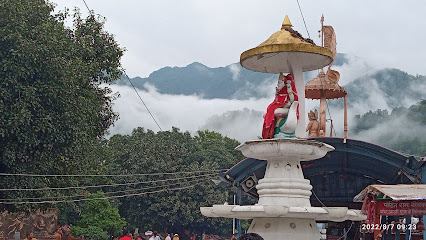
Ram jhula
Discover the serene beauty and spiritual essence of Ram Jhula, the iconic suspension bridge in Rishikesh, India, where adventure meets tranquility.
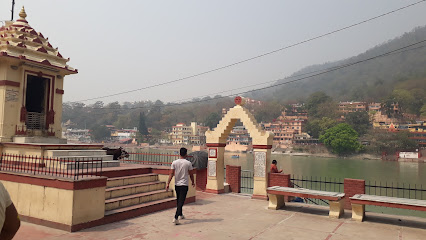
Parmarth Niketan Ashram
Experience serenity and spiritual growth at Parmarth Niketan Ashram, Rishikesh's premier yoga retreat and tourist attraction.
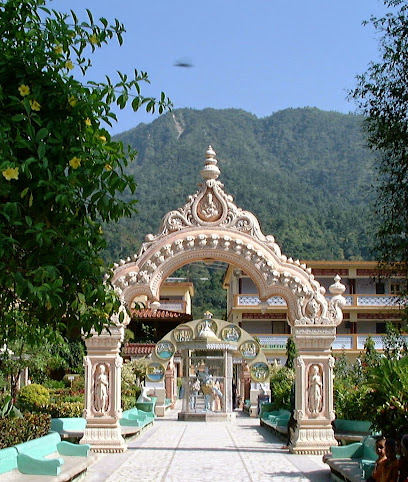
The Beatles Ashram, Rishikesh
Discover the tranquil charm of The Beatles Ashram in Rishikesh, a unique blend of music history and spiritual serenity along the Ganges.
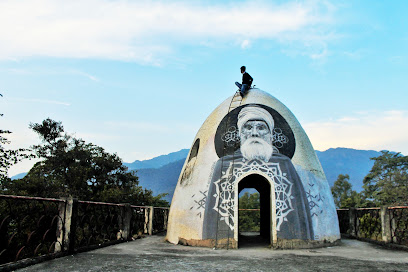
Lakshman Jhula
Discover the iconic Lakshman Jhula, a bridge steeped in mythology, connecting serenity with vibrant local culture in the heart of Rishikesh.

The Secret Waterfall Rishikesh - DhaulSrot
Explore the serene beauty of The Secret Waterfall in Rishikesh, a hidden gem surrounded by lush nature offering tranquility and adventure.
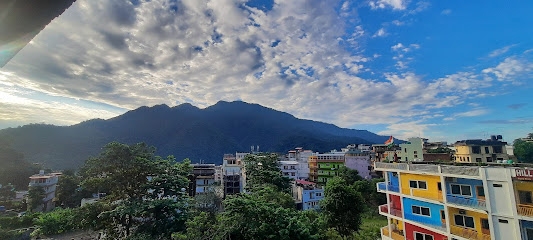
HimShail WaterFall
Discover the serene beauty of HimShail WaterFall in Rishikesh, a picturesque destination perfect for nature lovers and adventure seekers.
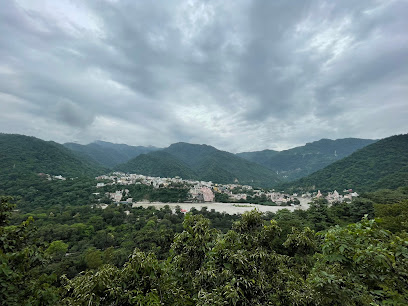
Tapovan Public Ghat
Discover the serene beauty and spiritual essence of Tapovan Public Ghat, a must-visit attraction in Rishikesh, perfect for meditation and relaxation.
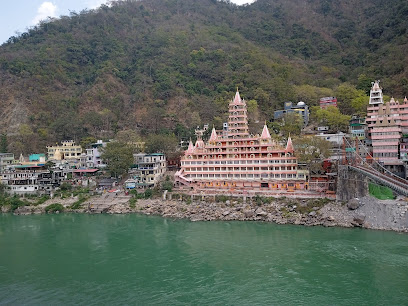
Rishikesh Trip.
Discover Rishikesh, a serene blend of spirituality and adventure, nestled in the foothills of the Himalayas. Experience yoga, meditation, and thrilling outdoor activities.
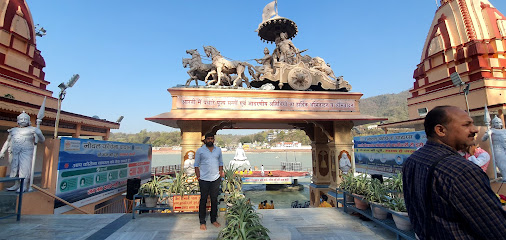
Ganga River, Rishikesh
Explore the spiritual and natural beauty of the Ganga River in Rishikesh, a paradise for yoga, adventure, and tranquility.
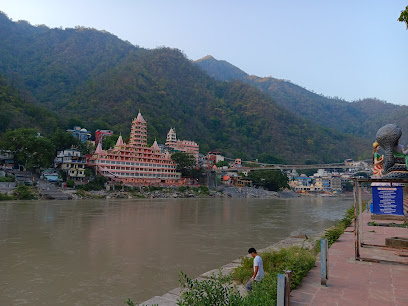
Unmissable attractions to see
Tapovan Public Ghat
Discover tranquility and spiritual rejuvenation at Tapovan Public Ghat in Rishikesh, where the sacred Ganges offers a serene retreat.
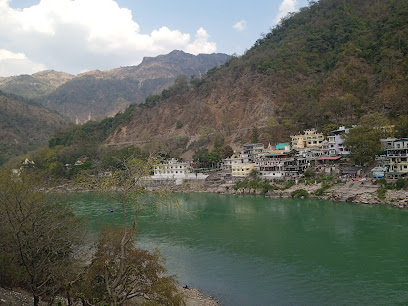
Rishikesh Trip.
Explore Rishikesh, the perfect blend of spirituality and adventure in the heart of the Himalayas, where yoga meets thrilling river rafting.
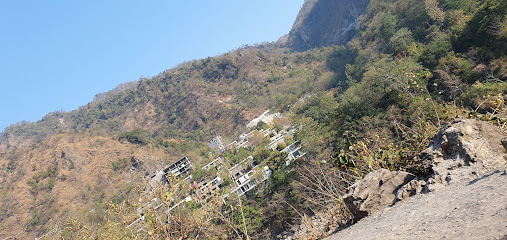
Sunset Point Rishikesh
Experience the breathtaking beauty of Sunset Point in Rishikesh, where the sun meets the Ganges in a spectacular display of colors.
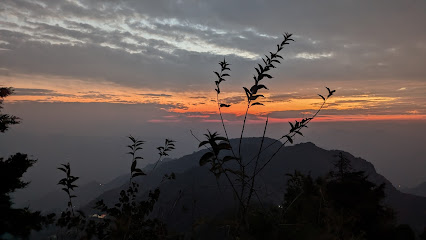
Essential places to dine
The Sitting Elephant - A Rooftop Restaurant Overlooking River Ganga
Experience breathtaking views and delectable cuisine at The Sitting Elephant rooftop restaurant overlooking River Ganga in Rishikesh.
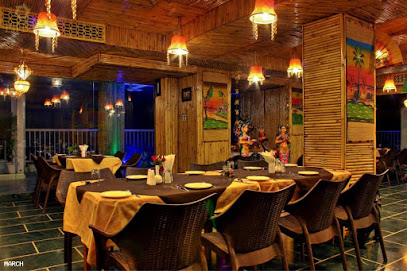
Little Buddha Cafe
Experience the serene ambiance and delightful vegetarian cuisine at Little Buddha Cafe in Rishikesh – your perfect retreat amidst nature's beauty.
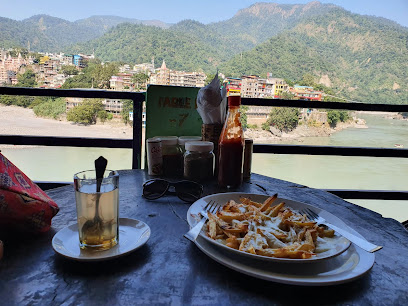
Bistro Nirvana
Discover culinary bliss at Bistro Nirvana in Rishikesh – where Italian meets Mexican flavors in a serene setting.
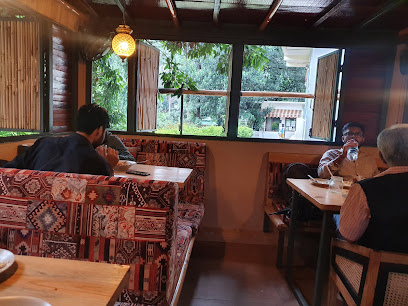
Pink Cafe Bar and Restaurant in Rishikesh
Savor exquisite flavors at Pink Cafe Bar and Restaurant in Rishikesh – where culinary excellence meets serene ambiance.
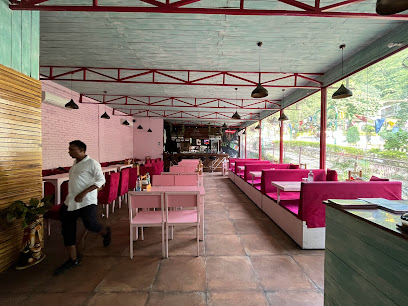
Vj's giardino by the Ganges
Experience delicious vegetarian pizzas with breathtaking views at Vj's Giardino by the Ganges in Rishikesh.
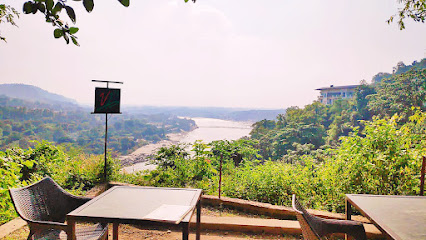
A Tavola Con Te - Restaurant In Rishikesh | Italian Restaurant In Rishikesh | Wood Fired Oven Pizza | Pizza Home Delivery
Discover authentic Italian flavors at A Tavola Con Te in Rishikesh - indulge in wood-fired pizzas and vegetarian delights amidst stunning Himalayan views.
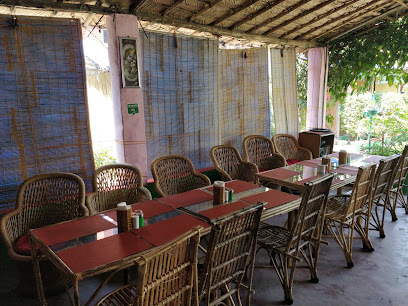
Tripto's Pizza at Swiss Garden, Tapovan
Experience authentic Italian cuisine at Tripto's Pizza in Rishikesh—where every bite transports you to Italy amidst breathtaking Himalayan views.
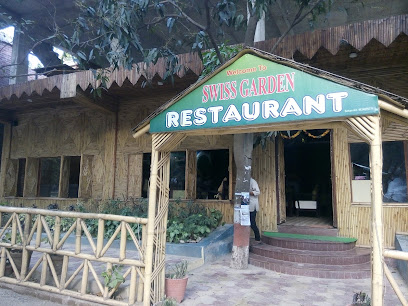
Oscenox Little Amsterdam
Experience family-friendly dining at Little Amsterdam in Rishikesh – where delightful cuisine meets serene surroundings.
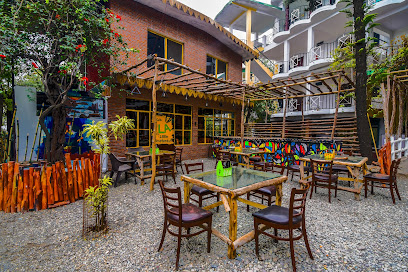
SkyMax Lounge
Experience exquisite dining and thrilling adventures at SkyMax Lounge in Rishikesh – where culinary excellence meets natural beauty.
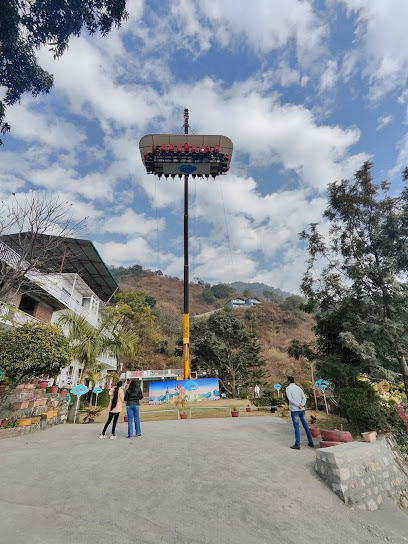
Cafe The Nest
Discover Café The Nest in Rishikesh: A cozy restaurant offering delicious food amidst tranquil surroundings.
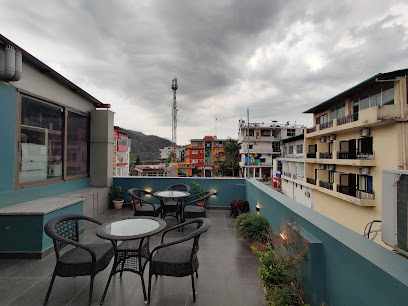
Markets, malls and hidden boutiques
Pundir Store
Discover organic delights at Pundir Store in Rishikesh, where health meets sustainability in a serene shopping experience.
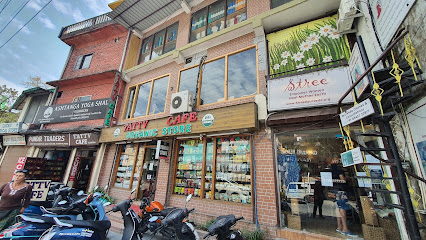
Very Good Shop
Discover the charm of Rishikesh fashion at Very Good Shop, where unique clothing and handicrafts await every traveler.
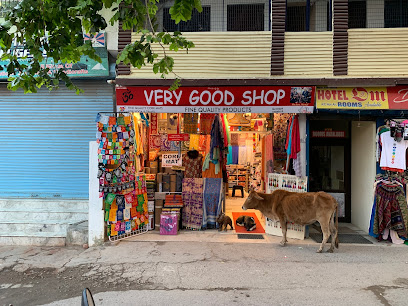
Namaste Rishikesh Pashmina Store
Explore the exquisite craftsmanship of pashmina and handicrafts at Namaste Rishikesh Pashmina Store, a unique shopping destination in Rishikesh.
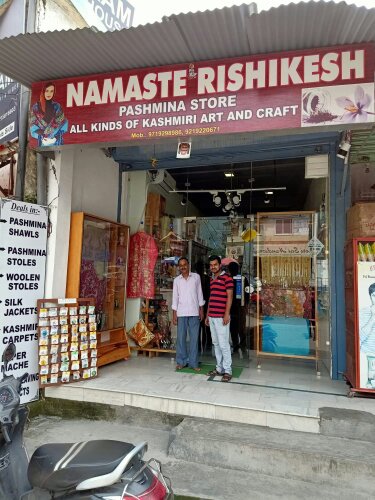
Arora Provision Store
Experience the essence of healthy living at Arora Provision Store in Rishikesh - your go-to organic shop for nutritious delights.
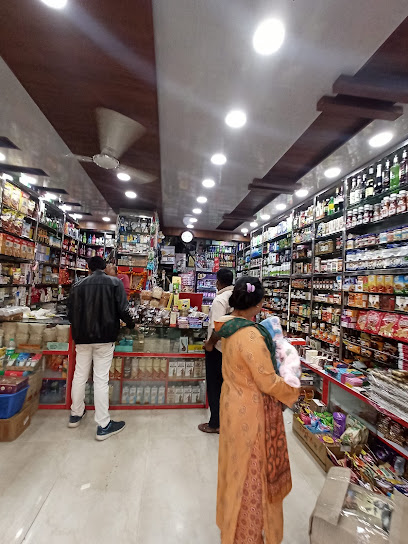
The Best Shop
Explore The Best Shop in Rishikesh for unique local crafts, trendy fashion, and an unforgettable shopping experience in the heart of this spiritual destination.
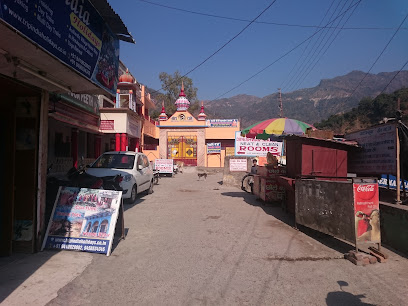
Scorpion Handicraft
Explore the vibrant world of Indian fashion at Scorpion Handicraft in Rishikesh, showcasing unique garments crafted with cultural flair.
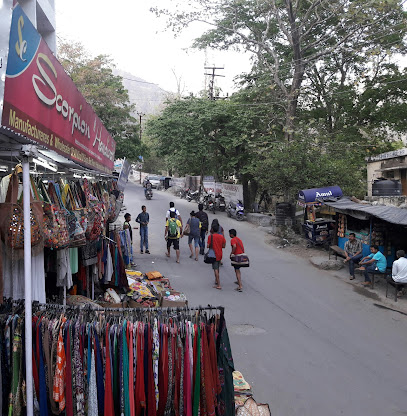
Jain Spice Shop
Explore Jain Spice Shop in Rishikesh for an unforgettable journey through India's vibrant spice heritage and unique culinary treasures.
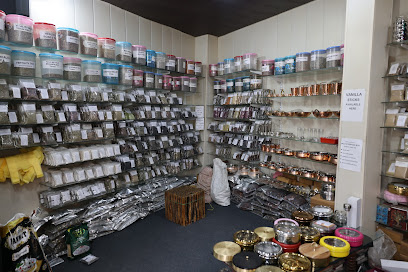
Fabindia, Laxman Jhula, Rishikesh
Discover Fabindia in Rishikesh for authentic Indian clothing and home decor, blending tradition with contemporary style in a picturesque setting.

Stree
Explore Stree in Rishikesh for eco-friendly fashion and organic products, where sustainability meets style in a serene shopping environment.

Sai ram boutique
Discover unique clothing and accessories at Sai Ram Boutique in Rishikesh, where culture meets style in a vibrant shopping experience.

Essential bars & hidden hideouts
Bistro Nirvana
Discover the culinary bliss of Bistro Nirvana in Rishikesh - a perfect blend of Italian and Mexican flavors in a serene atmosphere.
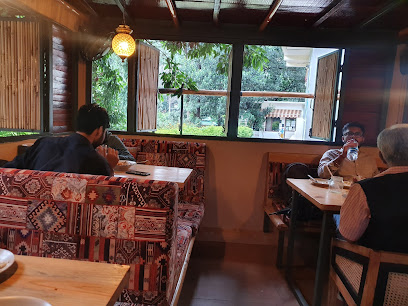
Pink Cafe Bar and Restaurant in Rishikesh
Experience the perfect blend of flavors and ambiance at Pink Cafe Bar and Restaurant in Rishikesh, where culinary dreams come alive.
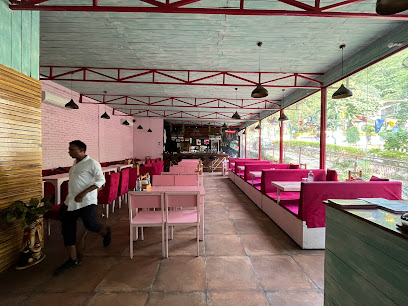
Ira's Kitchen and Tearoom
Discover the serene ambiance and delightful vegetarian cuisine at Ira's Kitchen and Tearoom in Rishikesh, the perfect spot for breakfast and lunch.
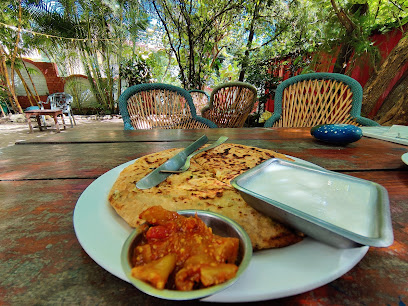
SkyMax Lounge
Discover the perfect blend of fine dining and adventure at SkyMax Lounge in Rishikesh, where culinary delights meet breathtaking views.
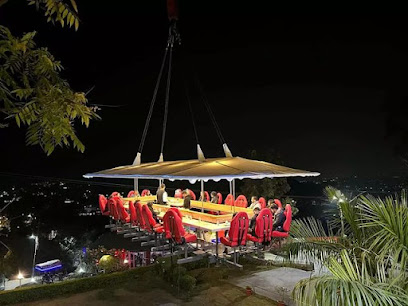
HIGH-SKY
Discover exquisite dining with stunning views at HIGH-SKY in Rishikesh, where culinary artistry meets the beauty of nature.
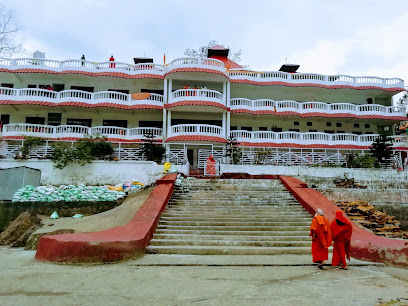
Leo13 the groot
Unwind at Leo13 the Groot, Rishikesh's trendy bar with refreshing drinks and a vibrant atmosphere.
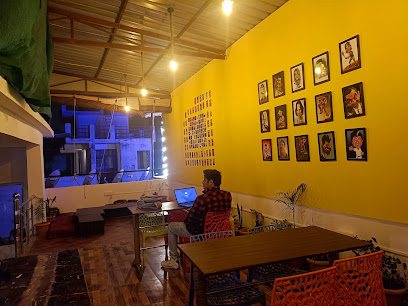
The Hippie Cafe
Experience the spirit of Rishikesh at The Hippie Cafe, where flavorful dishes meet a vibrant atmosphere, perfect for travelers and adventurers alike.
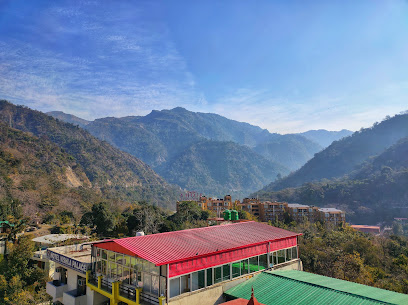
Mocktail Bar And Cafe
Discover the serene atmosphere of Mocktail Bar and Cafe in Rishikesh, where refreshing mocktails and peaceful vibes await.

Damroo Restaurant
Experience the essence of Indian cuisine at Damroo Restaurant in Rishikesh, where traditional flavors meet serene surroundings.
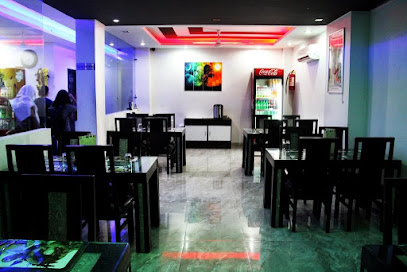
Baba soda shikanji
Experience the vibrant ambiance and refreshing flavors of Baba Soda Shikanji, a unique bar in Rishikesh, perfect for relaxation and socializing.
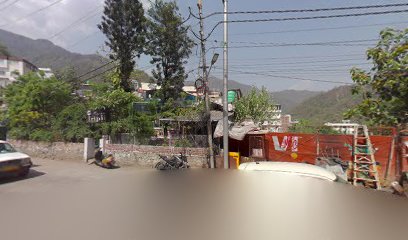
Local Phrases
-
- Helloनमस्कार
[namaskar] - Goodbyeअलविदा
[alvida] - Yesहाँ
[haan] - Noनहीं
[nahin] - Please/You're welcomeकृपया
[krupaya] - Thank youधन्यवाद
[dhanyavad] - Excuse me/Sorryक्षमा करें
[kshama karein] - How are you?आप कैसे हैं?
[aap kaise hain?] - Fine. And you?ठीक हूँ। और आप?
[thik hoon. aur aap?] - Do you speak English?क्या आप अंग्रेज़ी बोलते हैं?
[kya aap angrezi bolte hain?] - I don't understandमुझे समझ में नहीं आया
[mujhe samajh mein nahin aaya]
- Helloनमस्कार
-
- I'd like to see the menu, pleaseकृपया मेन्यू देखना चाहूँ
[krupaya menu dekhna chahoon] - I don't eat meatमैं मांस नहीं खाता/खाती
[main maans nahin khaata/khaati] - Cheers!शान्ति!
[shanti!] - I would like to pay, pleaseकृपया मैं भुगतान करना चाहूँ
[krupaya main bhugtan karna chahoon]
- I'd like to see the menu, pleaseकृपया मेन्यू देखना चाहूँ
-
- Help!मदद!
[madad!] - Go away!दूर हो जाओ!
[door ho jao!] - Call the Police!पुलिस को बुलाओ!
[police ko bulaao!] - Call a doctor!डॉक्टर को बुलाओ!
[doctor ko bulaao!] - I'm lostमैं खो गया/गई हूँ
[main kho gaya/gayi hoon] - I'm illमुझे बीमारी है
[mujhe bimari hai]
- Help!मदद!
-
- I'd like to buy...मैं खरीदना चाहता/चाहती हूँ...
[main khareedna chahta/chahti hoon...] - I'm just lookingमैं बस देख रहा/रही हूँ
[main bas dekh raha/rahi hoon] - How much is it?यह कितने का है?
[yah kitne ka hai?] - That's too expensiveयह बहुत महंगा है
[yah bahut mahnga hai] - Can you lower the price?क्या आप कीमत कम कर सकते हैं?
[kya aap keemat kam kar sakte hain?]
- I'd like to buy...मैं खरीदना चाहता/चाहती हूँ...
-
- What time is it?अब कितने बजे हैं?
[ab kitne baje hain?] - It's one o'clockएक बजे हैं
[ek baje hain] - Half past (10)(10) बजे आधे हैं
[(das) baje aadhe hain] - Morningसुबह
[subah] - Afternoonदोपहर
[dopahar] - Eveningशाम
[shaam] - Yesterdayकल
[kal] - Todayआज
[aaj] - Tomorrowकल
[kal] - 1एक
[ek] - 2दो
[do] - 3तीन
[teen] - 4चार
[chaar] - 5पाँच
[paanch] - 6छह
[chheh] - 7सात
[saat] - 8आठ
[aath] - 9नौ
[nau] - 10दस
[das]
- What time is it?अब कितने बजे हैं?
-
- Where's a/the...?...कहाँ है?
[...kahan hai?] - What's the address?पता क्या है?
[pata kya hai?] - Can you show me (on the map)?(नक्शे पर) दिखा सकते हैं?
[(naksha par) dikha sakte hain?] - When's the next (bus)?अगली (बस) कब है?
[agli (bas) kab hai?] - A ticket (to ....)एक टिकट (.... के लिए)
[ek ticket (... ke liye)]
- Where's a/the...?...कहाँ है?
History of Tapovan
-
Tapovan, part of Rishikesh, has been revered for centuries as a spiritual hub. The name 'Tapovan' translates to 'forest of penance', indicating its historical significance as a place for meditation and asceticism. Ancient texts reference this area as a retreat for sages and saints seeking enlightenment, and it became a popular destination for pilgrims long before the modern influx of tourists.
-
According to local lore, Tapovan holds connections to the epic Mahabharata. It is believed that the Pandavas resided in the region during their exile, deepening the area's spiritual and mythological significance. This connection to one of India's greatest epics attracts scholars and devotees alike, who come to explore the roots of Indian mythology.
-
In the 20th century, Swami Sivananda established the Divine Life Society in Rishikesh, greatly influencing the development of Tapovan as a center for yoga and spirituality. His teachings and the establishment of ashrams in the area popularized the practice of yoga and meditation, drawing people from around the world to experience the spiritual serenity of Tapovan.
-
In recent decades, Tapovan has evolved into a melting pot of cultures, combining traditional Indian spirituality with global influences. The influx of international visitors seeking yoga retreats and wellness programs has transformed the neighborhood into a vibrant community, where ancient traditions coexist with modern amenities. This cultural fusion reflects the dynamic nature of Rishikesh as a global spiritual capital.
-
With the rise of tourism in Tapovan, there have been concerted efforts to promote environmental conservation and maintain the natural beauty of the area. Local organizations and ashrams are actively involved in initiatives to preserve the Himalayan ecosystem, ensuring that the spiritual and natural heritage of Tapovan continues to thrive for future generations.
Tapovan Essentials
-
Tapovan is easily accessible from various parts of Rishikesh. If you are coming from the main town area, it's a short walk of about 1-2 kilometers. Auto-rickshaws and taxis are readily available and can take you to Tapovan from anywhere within Rishikesh for a reasonable fare. Alternatively, if you are traveling from Haridwar, you can take a bus or taxi which takes approximately 1 hour to reach Rishikesh, followed by local transport to Tapovan.
-
Tapovan is a small neighbourhood, best navigated on foot. Most attractions, including yoga studios, cafes, and the Ganges, are within walking distance. Auto-rickshaws are available for longer distances. Bicycles can be rented from local shops, providing a leisurely way to explore the area. Local buses do connect various parts of Rishikesh, but they are not the most convenient option for Tapovan.
-
Tapovan is generally safe for tourists, but like any tourist area, it is wise to remain cautious. Petty crimes such as pickpocketing can occur, particularly in crowded areas. It is advisable to avoid poorly lit streets at night and to be wary of overly friendly strangers offering unsolicited help. Areas around the bus station can be busier and may require more vigilance.
-
In case of an emergency, dial 100 for police assistance and 108 for ambulance services. Familiarize yourself with the nearest hospitals, such as the Swami Ramdev Hospital and the Government Hospital. Always have a copy of your travel insurance and local emergency numbers handy. For minor health issues, there are several pharmacies in Tapovan.
-
Fashion: Do wear modest clothing, especially when visiting temples. Avoid shorts and sleeveless tops. Religion: Do respect local customs; remove shoes before entering temples. Public Transport: Do be courteous; offer seats to the elderly. Don't engage in loud conversations on public transport. Greetings: Do greet locals with 'Namaste' and a slight bow, showing respect. Eating & Drinking: Do try local vegetarian dishes and drink bottled water. Don’t eat in public areas like temples or while walking.
-
To experience Tapovan like a local, participate in early morning yoga sessions by the Ganges, which are popular among residents. Visit the local markets for fresh produce and handicrafts. Engage with local shopkeepers; many have fascinating stories about the area. Don't miss out on evening Ganga Aarti at Triveni Ghat, a spiritual experience that draws both locals and tourists alike.
Nearby Cities to Tapovan
-
Things To Do in Shimla
-
Things To Do in Delhi
-
Things To Do in Manali
-
Things To Do in Agra
-
Things To Do in Amritsar
-
Things To Do in Lahore
-
Things To Do in Jaipur
-
Things To Do in Gwalior
-
Things To Do in Jammu
-
Things To Do in Lucknow
-
Things To Do in Sialkot
-
Things To Do in Leh
-
Things To Do in Kanpur
-
Things To Do in Gujranwala
-
Things To Do in Ranthambore













